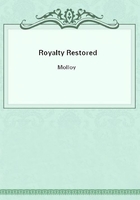
第105章 CHAPTER XVIII.(2)
This improbable story obtained no credit with the king, nor indeed with those whose minds were free from prejudice. "His majesty," writes Sir John Reresby, "told me Bedlow was a rogue, and that he was satisfied he had given false evidence concerning the death of Sir Edmondbury Godfrey." Many circumstances regarding the narrator and his story showed the viciousness of the one and the falsity of the other. The authority just mentioned states, when Bedlow "was taxed with having cheated a great many merchants abroad, and gentlemen at home, by personating my Lord Gerard and other men of quality, and by divers other cheats, he made it an argument to be more credited in this matter, saying nobody but a rogue could be employed in such designs." Concerning the murder, it chanced the king had been at Somerset House visiting the queen, at the time when, according to Bedlow, the deed had been committed. His majesty had been attended by a company of guards, and sentries had been placed at every door; yet not one of them had witnessed a scuffle, or heard a noise. Moreover, on the king sending Bedlow to Somerset House, that he might indicate the apartment in which the magistrate's remains had lain three days, he pointed out a room where the footman waited, and through which the queen's meals were daily carried.
But the dishonesty of his character and falsity of his statements by no means prevented the majority of his hearers from believing, or pretending to believe, his statements; and therefore, encouraged by the ready reception they met, he ventured to make fresh and startling revelations. Heedless of the oath he had taken on the first day of his examination, regarding his ignorance of the popish plot, he now asserted he was well acquainted with all its details. For some four years he had been in the secret employment of the wicked Jesuits, and knew they intended to stab and poison his majesty, establish catholicity in England, and make the pope king. So far, indeed, had their evil machinations been planned, that several popish peers already held commissions for posts they expected to fill in the future. Lord Bellasis and Lord Powis were appointed commanders of the forces in the north and south; whilst Lord Arundel of Wardour had permission to grant such positions as he pleased. Then the Dukes of Buckingham, Ormond, and Monmouth, with Lords Shaftesbury and Ossory, together with many others, were to be murdered by forty thousand papists, who were ready to rise up all over the country at a moment's notice. "Nor was there," he added, "a Roman Catholic of any quality or credit but was acquainted with these designs and had received the sacrament from their father confessors to be secret in carrying it out."It by no means pleased Oates that Bedlow should surpass him in his knowledge of this hellish plot. Therefore, that he might not lose in repute as an informer, he now declared he was also aware of the commissions held by popish peers. He, however, assigned them in a different order. Arundel was to be made chancellor;Powis, treasurer; Bellasis general of the army; Petre, lieutenant-general; Ratcliffe, major-general; Stafford, paymaster-general; and Langhorn, advocate-general. Nay, his information far outstripped Bedlow's, for he swore that to his knowledge Coleman had given four ruffians eighty guineas to stab the king, and Sir George Wakeham had undertaken to poison his majesty for ten thousand pounds. When, however, he was brought face to face with these men, he was unable to recognise them, a fact he accounted for by stating he was exhausted by prolonged examination, All England was scared by revelations so horrible; "the business of life," writes Macpherson, "was interrupted by confusion, panic, clamour, and dreadful rumours." In London, two thousand catholics were cast into prison; houses were daily searched for arms and treasonable documents; and in good time merciless executions filled up the sum of bitter persecutions.
One of the first victims of this so-called plot was William Staley, a catholic banker of fair renown. The manner in which his life was sacrificed will serve as an example of the injustice meted to those accused. One day, William Staley happened to enter a pastrycook's shop in Covent Garden, opposite his bank, where there chanced to stand at the time a fellow named Carstairs; one of the infamous creatures who, envious of the honours and riches heaped on Oates and Bedlow, resolved to make new discoveries and enjoy like rewards. At this time he was, as Bishop Burnet states, "looking about where he could find a lucky piece of villainy." Unfortunately the banker came under his notice, and Bedlow and an associate pretended to have heard Staley say the king was a rogue and a persecutor of the people whom he would stab if no other man was found to do the deed.
These words Carstairs wrote down, and next morning called on the banker, showed him the treasonable sentence, and said he would swear it had been uttered by him, unless he, Staley, would purchase his silence. Though fully aware of his danger, he refused to do this; whereon Carstairs had him instantly arrested and committed for trial. Hearing of his situation, and knowing the infamous character of his accusers, Dr. Burnet thought it his duty to let the lord chancellor and the attorney-general know "What profligate wretches these witnesses were." His interference was received with hostility. The attorney-general took it ill that he should disparage the king's evidence; Lord Shaftesbury avowed those who sought to undermine the credit of witnesses were to be looked on as public enemies; whilst the Duke of Lauderdale said Burnet desired to save Staley because of the regard he had for anyone who would murder his majesty.